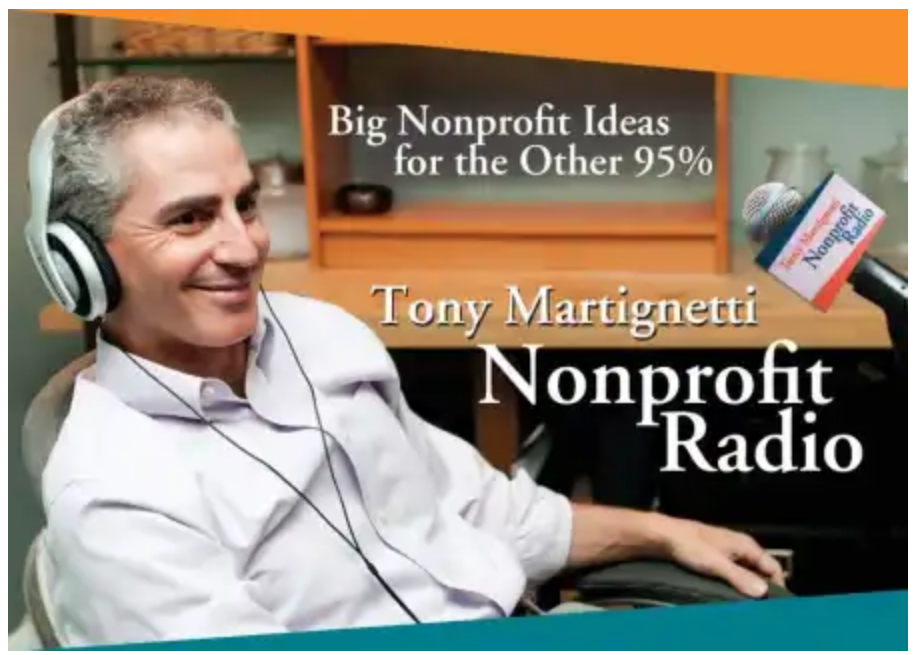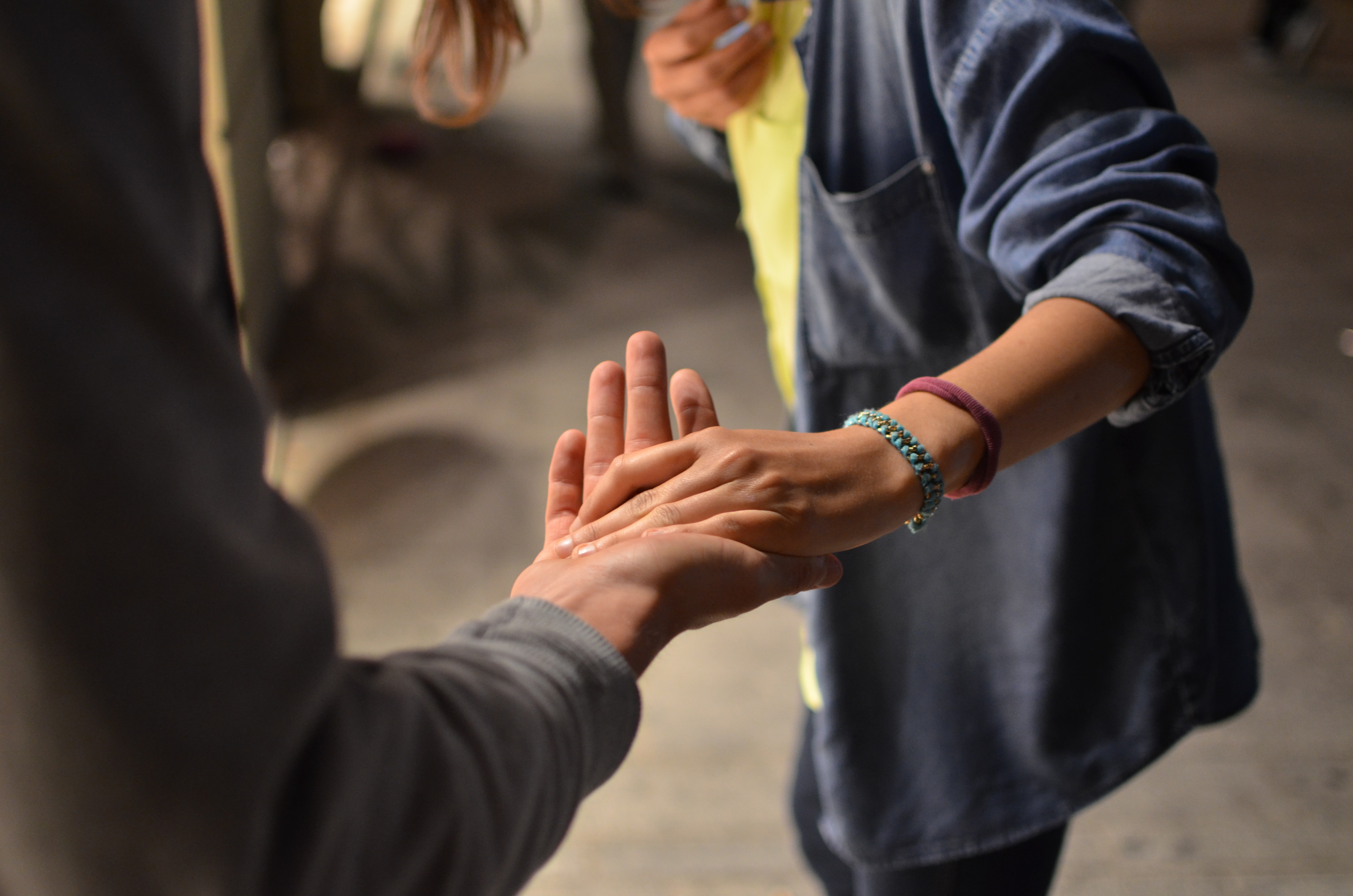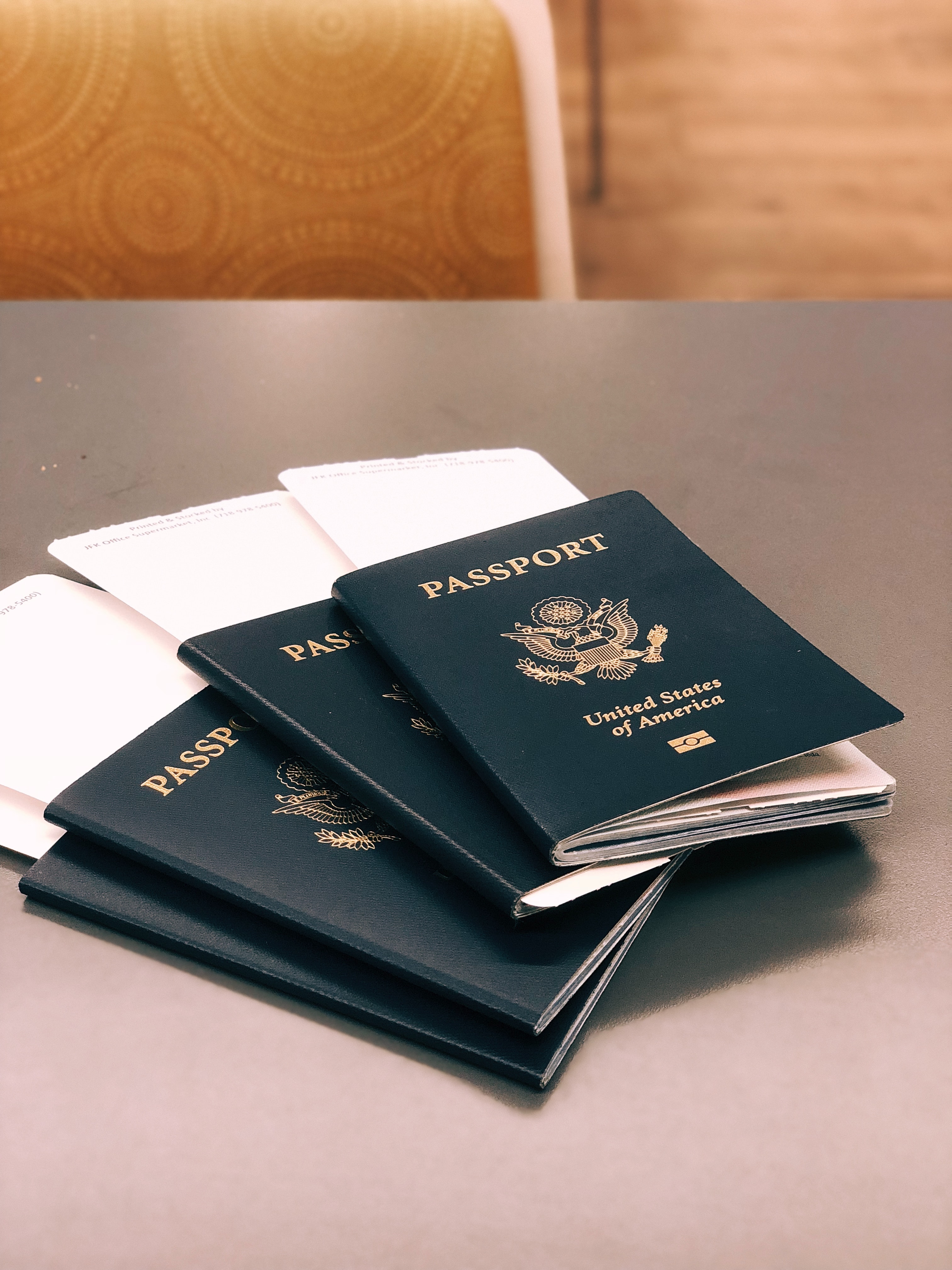I am privileged to be part of a journey supporting a client in their ambitious multi-million dollar campaign, and the success they are achieving is nothing short of remarkable. Such a campaign is usually a challenging feat for any organization, let alone a new organization that started the campaign with just a few donors in
Read More
resources
I have had the privilege of actively contributing to the strategic planning initiatives of several remarkable organizations. Throughout this journey, I've identified five common challenges within nonprofit strategic planning and have crafted effective solutions to guide my clients in steering clear of these potential pitfalls:
Problem: Strategic Plan as a Marketing Tool
The strategic plan often transforms
Read More
In my quest to make donor trips and site visits more equitable, effective, and empathy-enabling, I have poured over research. Every once in a while, I find a great piece of academic research that has immediate and practical application in our daily work. In this article, I share some of the best research on experience
Read More
As a principle ethical storytelling, I often stress the importance of honoring our contributors’ terminology, and using they words they use to describe themselves and their experiences. Sometimes we use words are not widely used in the English language, and a common thing to do is italicize them so the reader doesn’t confuse them for
Read More
A lot has been written about travel marketing – including what images or words help people begin imagining themselves in a place, and then instill such a desire to go there that those people book the trip on the spot.
This is not that article.
Rather than focus on glossy brochures or vivid language, this article focuses
Read More
After two years of a pause in travel for most organizations, it is clear by now that the industry has rebounded, with demand returning before supply can even catch up. This past year I’ve seen donor trips fill faster than ever, with little signs of that trend slowing down in 2023.
With such overwhelming demand, it
Read More
The cornerstone of my life’s work has been to understand what helps people communicate and collaborate more effectively across human differences. When I first started Philanthropy without Borders, my intention was to was to dismantle the exploitative elements often inherent in donor-client interactions by making the very best research in the social sciences readily applicable
Read More
"Caliopy Glaros has a unique, proven, and well curated approach to setting meeting goals, facilitating discussions skillfully and delivering an experience that engages not only participants’ minds but also their hearts and passion for the meeting agenda at hand. She has an expert skill – albeit innate! - in tailoring her work for each client
Read More
Campaign messages like “we are the voice for the children” and “we are the voice for the poor” are all too common. Those people already have their own voices (however they express themselves, be it though auditory speech or another means)…. Whether they are “heard” is another matter.
My point is, being the metaphorical voice for
Read More
I’ve written a lot about how utilizing empathy requires that we not project our own perceptions, assumptions, and desires on to others.
While the general public seems to think “empathy” means feeling exactly what another person feels; we often don’t know how another person feels because we are actually just projecting what we would feel in another person’s situation.
This problem
Read More
I‘ve been consulting on donor trips for a while now, and have come across a fair share of assumptions and ill-informed beliefs. In this article, I spell out the most common myths and misconceptions I have encountered…and saved the very best for last.
1. Donor trips have low retention.
Like any event, donor trips attract both those
Read More
As fundraising and marketing staff, you understand the why of donor trips, but a challenge you may still face is convincing your colleagues in the program department why they should take time to participate in a donor trip. (If you are wondering how program staff should and shouldn’t be involved in donor trips, see articles
Read More
If you have read my last article on “Consent is a Process, Not (Just) a Form,” you’ll know that obtaining informed consent from our clients is an important part of nonprofit storytelling. But if informed consent is just not possible, what do you do? I'm not talking about those circumstances when a client clearly declines
Read More
When it comes to ethical storytelling for nonprofits, “consent” has become a buzzword. Nearly every article on the topic of ethical storytelling mentions the need for “informed consent,” yet few go to the trouble of defining what exactly that means, why we need it, or how it can get operationalized. In this article, I’m going
Read More
This is one of those stories we tell ourselves: That fundraising staff and program staff are not aligned in storytelling.
There is a perception that the fundraising staff prioritize the needs of donors, wanting to overly focus on the negative aspects of clients’ lives and commodify their stories into “assets” for the annual appeal.
And
Read More
The conversation around ethical storytelling has evolved a lot over the years. We used to think of ethical storytelling as a practice of “doing no harm” to our contributors and those featured in the stories. For this, we owe a lot to journalism’s best practices, like getting informed consent, not traumatizing the contributors with insensitive questions, not
Read More
I was recently featured in an article for Travel Age West.
"Whether it’s climbing Mount Kilimanjaro, participating in a charity walk or dumping a bucket of ice over your friend’s head, what makes these activities so successful in sparking charitable giving?
Caliopy Glaros, founder and principal consultant of Philanthropy Without Borders, believes it comes down to
Read More
Most people think alumni travel is only one thing: big group trips, the kind we see in glossy catalog photos. But my experience working with universities and colleges large and small has revealed at least three models of alumni travel. One school could find a match with one model, or all three. You just should
Read More
One of our biggest challenges when writing about culture is avoiding stereotyping that culture. Sometimes our stories sound like stereotypes because we have failed to ask one important question of what we have written:
“How do I know what I just wrote is true?”
Dani Robbins, a nonprofit strategist, provided a great example of this failure in
Read More
I get asked a lot about how to address culture—a group’s shared values and beliefs—through ethical storytelling. Nonprofit staff who are not members of the communities they serve sometimes struggle with authentically describing the role culture plays in their organizations’ work. This apprehension makes sense; there are a lot of good questions around this topic.
What
Read More
I’ve written quite a bit about how to prepare donors for their client experiences and what should be included in their guidebooks, but there’s one very important thing we need to address: assumptions and expectations.
Although these words are often used interchangeably, in my work, I draw some critical distinctions between the two:
Assumptions are our
Read More
As a fundraiser and intercultural communications consultant, I’m often asked to help prepare donors and staff for the cultural differences they will encounter when interacting with populations both within the United States and around the world. For example, if a group of donors from the United States is traveling to Ethiopia to tour projects they
Read More
In my last article I cautioned you against overextending, burdening, and miscasting your Program Staff and Local Partners (the people who work for you on-site where your organization’s work is happening).
Now let’s dive in to discussing the three most meaningful ways to make use of their skills and knowledge.
1. For direct client engagement
“Client,” in this
Read More
For all those folks in fundraising who are planning your next donor trip with the help from locals on site: this article is for you. Your on-site Program Staff and Local Partners have important roles to play—just not necessarily the ones you think. Support them by allowing them to do their actual jobs. Don’t overburden
Read More
I recently wrote about how a donor trip can be used effectively with donors at any stage of the donor cycle. But let’s get real: while some organizations have large enough travel programs to offer different trips for different donors at each stage, many organizations only do one trip (or a handful of trips) a
Read More
I’ve written a lot about having one clear goal for your donor trip.But what should that goal be?Are donor trips about acquiring new donors, cultivating existing donors, or recognizing recent donors?The answer is…all of the above.But it is helpful to distinguish your approach based on where a donor sits in the donor cycle.
In fundraising, there
Read More
So much of the social impact sector relies on the support of volunteers. This is true both domestically and internationally. Volunteers play a vital role in our operations and our ability to effect change. With so much good being done by volunteers, it seems ungrateful to complain about harm that can be perpetuated by them.
Read More
In 2019 at the Global PDX Conference, I moderated a panel called “Voluntourism: Power, Privilege, and New Possibilities.” We didn’t shy away from the controversies of sending people overseas for short-term assignments, some of which I’ve documented in the article “5 Pitfalls of Voluntourism.”
While the challenges and disappointments of voluntourism have been well-documented in the
Read More
After nearly a year of pandemic-induced virtual engagement, we may feel pretty comfortable with our default tools and formats. However, I am amazed by how many folks I continue to meet who remain unaware of amazing free tools. I use the following platforms every day in my work, and I have many clients who have
Read More
With the vaccine looming and pent-up demand for human interaction nearing its bursting point, it’s no wonder we’re all thinking about hybrid events experiences, which occur both in person and in the virtual realm. But hybrid events can be more than twice the work of in-person and virtual events. This article explores common pitfalls to
Read More
Ethical storytelling is not just about good stewardship in acquisition (interviewing)—often the biggest blunders occur behind the scenes: in the editorial process.
Of all the steps, this stage of the process can truly be ridden with disasters, where a story can be appropriated into something the contributor never intended. Take a look at some examples:
“A friend
Read More
I’ve written a lot about the principles behind ethical storytelling, how empathy differs from sympathy in storytelling, why exploitative storytelling persists, and how the evolving landscape of lexicon and language influence meaning and marginalization. These topics are great for reflection, but in this article I roll up my sleeves to give you some tangible tips
Read More
I’ve written a lot about the role cultural differences play in travel, particularly, donor trips. But in this article, I want to bring the message of intercultural awareness home to a more familiar territory: staff interactions with donors. Specifically, I’m talking about those the one-on-one meetings that development officers, board members, and executive directors have
Read More
As a follow up to my foundational article, “What You Thought Was Empathy Was Actually Sympathy,” in this article I dispel some misconceptions about empathy and provide tactical pointers to help nonprofit professionals better embody empathy in their work and avoid the pitfalls of sympathy.
Empathy is not about emotion...it’s about understanding
Rather than try to pull
Read More
Empathy has come to have a bad rep lately. After enjoying years in the spotlight as the antidote to just about everything from prejudice to poverty, empathy is now being rebranded as the cause—not the solution—to those problems.
The arguments are not insignificant.
Psychologist Paul Bloom has been a long-time critic of empathy in the charitable sector,
Read More
While virtual experiences continue to be the only way we can connect with our supporters during this pandemic, many organizations are wondering what more they can do to incorporate equity into their events. Don’t let this powerful principle live in the HR manual—in this article, I provide five ways to incorporate equity in your virtual
Read More
Originally published in "Impact Tourism Handbook: Best Practices in Giving Time, Talent, & Treasure" by the Center for Responsible Travel.
What is donor travel?
Donor travel is a thriving and important subset of impact tourism. While it can be argued that all donor trips are considered impact trips, not all impact trips are considered donor trips. The
Read More
In the fall of 2019, I was speaking with a client about creating a process for vetting prospective tour operators around equity. Her organization has a strong social justice component in their mission and wanted to ensure they were partnering with tour operators who shared their commitment. This proved challenging, as some tour operators only
Read More
While many inspiring leaders and activists have stepped up to create and share resources on how to respond to the current movement, my colleagues in the fundraising space have lamented the lack specific ideas and tools for having critical conversations with donors.
These conversations can feel daunting for organizations whose missions don’t explicitly include the dismantling
Read More
We live in a time when remaining silent on critical issues is no longer possible. Even if we have been living lives of relative comfort—the lives of our friends, families, and neighbors are at stake.
You know that you need to have more honest, transparent, and authentic conversations with donors, volunteers, and colleagues on race, bias,
Read More
The COVID-19 outbreak has created challenges for the way nonprofits engage their supporters. While we remain apart from each other at physical distances, unable to travel or even convene in large groups, the question on everyone's mind is: how do we continue to steward and engage our donors while they can’t meet us in person,
Read More
The outbreak of COVID-19 has presented a new urgency for nonprofits to engage donors virtually. After training over 5,000 people on virtual engagement and helping a dozen of my current clients come up with creative ideas, I put together this list of 10 tips to help fundraising and event staff focus their efforts on those
Read More
I've received a lot of questions about the future of donor travel post-COVID-19 and want to offer my perspective. To see my forecasts on the travel industry with some specific predictions for donor travel, check out the bottom of my FAQs article here.
So how will your travel program change after the crisis is over?
In a
Read More
Last month COVID-19 cases hit the United States with full force and I pivoted my content strategy. I took a break from providing new tools and content on my newsletter and instead sent out an offer to have a free 30-minute strategy call with anyone who felt they needed one.
Many of folks took me up
Read More
Since the term “poverty porn” first appeared in 1981, much has been said about the exploitation of human suffering to inspire charitable giving. Yet for all that we’ve learned over the last four decades, many organizations still struggle to communicate their impact in a way that authentically represents the issue and preserves the dignity of
Read More
In this article, I highlight the main critiques of exploitation in fundraising communications.
Over the years many organizations, including nonprofits, media publications, and corporate entities, have been criticized for using exploitative language and imagery to inspire action. These communications are seen as taking advantage of the differences (access to resources, lived experience, race, geographic location, etc.)
Read More
Staff members are selected to participate in donor trips for a variety of reasons. In an earlier article I published on roles and responsibilities, I argued that the staff members physically attending the trip should be those folks who hold the relationships with the key travelers and who are comfortable with the fundraising element. While
Read More
Selecting the right staff member(s) to attend your donor trips is a special challenge for many organizations. No matter how small the shop, these decisions can be very political and sometimes determined by arbitrary or irrelevant factors. Rather than dwell on what those may be, I’ve provided an article on factors you do need to
Read More
Planning tours for philanthropists, volunteers, or others looking to invest time, talent, or treasure? Avoid these five common mistakes when planning their next travel adventure.
Impact tours are one of the fastest growing arms of the travel industry. The Center for Responsible Travel (CREST) defines impact tourism as “making strategic contributions of time, talent, and treasure
Read More
The balance between fundraising and education in nonprofit travel programs is not easy to achieve. It takes thorough planning and a little trial and error to get the mix right.
In a previous article, I examined the role of ten factors and helped you place your organization on a continuum of fundraising and education.
In this article,
Read More
Many nonprofits wonder what the right balance is between fundraising and education in their travel programs.
While every trip aims to be educational, at the very least informing the travelers about the organization and its work, but the extent to which we use these experiences as opportunities for fundraising differs drastically by program and organization.
In the
Read More
Many organizations believe that donor trips are a waste of resources - that donors should give money directly to the organization instead of spending it on plane tickets to travel to the site.
In this short video, Caliopy Glaros debunks this myth and explains why we shouldn't be comparing the intrinsic value of travel to that
Read More
What kind of cultural preparation do staff, volunteers, and donors really need before embarking on a short assignment overseas? Here, I argue that it is more critical to provide cultural preparation for short-term assignments than it is for long-term ones.
While much attention has been paid to the role of intercultural competence in long-term international placements,
Read More
Assessing someone’s intercultural competence is one of the most difficult things to do in an interview process, so let's drill down into one question you can start using right away.
Some years ago, an organization hiring a staff position that required 25% international travel asked me to come up with one question to assess a candidate's
Read More
Site visits play an important role in helping funders determine which organizations and causes to allocate resources to, but unfortunately these engagements are also ripe for exploitation. Staff in nonprofits often spend undue time preparing for and facilitating site visits from funders, much of it to the detriment of their programs. Nonprofit clients are sometimes
Read More
Lack of clarity around the role of the volunteer causes many organizations to struggle in matching offers of help with their critical needs. This article aims to help organizations and individuals identify the right volunteer model for their engagement.
While almost every nonprofit relies on the support of volunteers, not all of them are using those
Read More
Are you ready to launch a donor travel program, or take your existing program to the next level?
My assessment will help you identify areas of strength and growth in your current and future travel initiatives. Remember, a travel program is more than a single trip - it's a long-term organizational strategy to build and retain your supporter base.
If
Read More
Nonprofits have come a long way in our understanding of the potential harm that can be done by exploitative fundraising campaigns. However, we still struggle with certain storytelling practices. I’ve curated a list of the three hottest topics in ethical storytelling right now and presented both sides of each argument.
How you should proceed with each issue
Read More
The language we use matters. When is donor-centric language an effective way of garnering support, and when do fundraisers cross the line in communicating real issues with transparency and authenticity?
A long time ago (and yes, sometimes still today), nonprofits centered themselves in their communications to donors. Fundraising appeals were very - to put it bluntly -
Read More
Few organizations anticipate cross-cultural challenges on their donor trips, but almost all are likely to encounter them. Here I explain the most common cross-cultural challenges involved in donor trips and what to do to avoid them.
In Part 1 of this article, I focused on the cultural challenges our visitors (donors, board members, volunteers) experience on
Read More
Few organizations anticipate cross-cultural challenges on their donor trips, but almost all are likely to encounter them. Here I explain the most common cross-cultural challenges involved in donor trips and what to do to avoid them.
Even the smoothest of donor and volunteer trips are not without their share of challenges. There are a number of
Read More
As someone who has spent the last decade helping people work effectively across cultures, I often get asked, “How much do we really have to adapt to other peoples’ cultural differences?”
Do we really need to ask about the weather before we can talk business?
Do we really have to refrain from showing strong emotions in professional
Read More
If your Ethical Fundraising Guidelines rely on words like “Dignity” and “Respect” to inform behavior and practice, chances are you’re not accomplishing very much.
When I read through guidelines for ethical storytelling or ethical photography and come across the phrases like “we believe in treating everyone with respect,” I’m inclined to ask three questions:
What is considered "respectful" treatment?
Who
Read More
When portraying people who have benefitted from the work of our organizations, it’s important that they have a meaningful voice in their portrayal.
Collecting their feedback is one of the only ways we can be sure to treat others the way they want to be treated. But we don’t know how they want to be treated
Read More
Before our donors and volunteers depart on trips with our organization, it is important to adequately prepare them. Doing so mitigates potential risks and increases the likelihood of a positive experience.
I used to think that handing out lengthy guidebooks was essential to preparing our visitors. Many of them will also do their own research, read
Read More
I’ve spent years sending donors, volunteers, students, and staff on overseas assignments and I’m keenly interested in what makes people successful in foreign environments. Many of us know someone who didn’t cope well on an international trip, while others surprised us with the ease at which they seemed to adapt just about anywhere. Why is
Read More
Nonprofit fundraising trips can be an excellent way of raising money and forming lifelong connections, but too many nonprofits are missing the opportunity to do both when they fail to follow up.
Business and sales professionals often hear the phrase “the fortune is in the follow-up” but rarely do I see this idea germinate in fundraising.
Read More
Following up with participants after a fundraising trip is one of the most important things your organization will do…and one of the easiest to mess up. Here are 7 Faux Pas organizations make in their follow-up approach after a trip.
Follow-up is bad when it:
1. Is Not Prompt
While you were away the work has been piling
Read More
The theme for today’s article is challenges. Why challenges and not solutions?
Based on my experience, every organization’s solutions are unique, but the problems are all quite similar. Just defining the problem in a clear and simple way can help better point us to a solution.
I’ve already addressed the two kinds of donor travel challenges most organizations have: that
Read More
Something I’ve learned doing this work is that most organizations face similar donor travel challenges and yet every organization needs tailored solutions.
The challenge usually boils down to one of two things: 1) an organization has never done a donor trip and doesn’t know how to build an effective program from the ground up; or 2)
Read More
What Happens When a Fundraising Copywriter Goes to Nepal…
Plus: Dan’s Top 5 Suggestions for What You Should Do Before Every Overseas Trip
So far in my career as a fundraising copywriter and strategist, the project I’m most happy to have worked on is a human trafficking safe home in Hetauda, Nepal.
We spent about 18 months planning,
Read More
I’ve written extensively about the importance and benefits of taking major donors to the field. In this article, I’d like to highlight the value that your organization can gain from sending board and staff members.
In some organizations with international missions, it is routine for executive and development teams to make multiple site visits. In others,
Read More
When planning to take donors or volunteers to the field, it is imperative that the trip aligns with your organization’s Mission, Strategic Plan, and Development Plan.
Failure to think through a travel program’s role in each of these three could result in creating unachievable goals for the trip - or worse - no goals at all.
Read More
Part 1 of this article focuses on why it is imperative to ask for the gift during a donor trip. Not before - when the donor has yet to see the incredible impact, and not after - when the climactic moment has passed and their attention may have shifted.
Making the ask on the trip requires
Read More
Everyday nonprofits are running travel programs for donors, board members, and volunteers without having any metrics in place to determine the program’s success. We’re all very familiar with the metrics and measurements we use in our mission-related work (also called Monitoring & Evaluation), as well as the benchmarks and goals we set for fundraising (as
Read More
While there can be a lot of variety in terms of structure, purpose, and implementation, most philanthropic travel programs fall into three categories.
It is helpful to understand these categories and their distinctions so that you can evaluate your organization’s current travel program and its ABC’s (actions, benefits, and challenges). For organizations who have yet to
Read More
If you have an organization with more than four paid staff, this is for you…
Planning a donor trip is tough work and usually involves the coordination of the Development staff, Leadership, Program/Field Staff, Partner Organizations, and Board. With so many stakeholders and different people involved, there should be nothing but clarity in terms of responsibility
Read More
Getting clear on roles and responsibilities for a donor travel program can be confusing. Nonprofits range in size and structure, so I developed this list as a reference - not a rule. Every organization is different and this graph may not accurately reflect your own, so take this format as an example of what I’ve seen
Read More
Before diving into the logistics of any nonprofit travel program, we must have clarity on who the right participants are for the trip.
I always stress that any trip should be designed around one specific objective, with a clear understanding of the type of people that could help the organization achieve that objective.
Whether your objective is
Read More
Alumni travel and donor travel have some essential differences in the type of participants they attract.
I recently met with a colleague from my university days and talked shop over some Portland coffee. He now works at a large university as a major gift officer. We spent quite some time talking about something that is unique
Read More
For success in donor travel, it is important to focus on one main goal.
People can only really do one thing well at a time, so we need to be focused in our requests. We know this from marketing 101. Campaigns and emails must have ONE clear ask, not “please make a contribution, and share this
Read More
Asking for the gift on the trip is one of the most effective ways to ensure your donor travel programs are raising money and meeting revenue goals.
To ask for the gift on a donor trip, or not to ask, that is the question.
There are a number of reasons why fundraising professionals would argue that you
Read More
Pulling off a successful donor trip is no easy endeavor, even with a trusted travel agency. I know this because I was once searching for the kind of organization I ended up founding: Philanthropy without Borders.
After discovering several critical gaps in the industry of philanthropic travel, I made it my mission to fill these gaps
Read More
ON THE MEDIA

Upcoming Speaking Engagement: 47th Annual Minnesota Gift Planning Association Conference
Upcoming Speaking Engagement: Donor Travel Track at the Educational Travel Consortium
Subscribe to our newsletter PWB Quarterly for the latest articles and resources!

CONTACT US
LOCATION
Portland, Oregon
About PWB
At Philanthropy without Borders, we help nonprofits clarify their priorities, tell powerful stories, and raise more money so they can continue to tackle the world’s toughest problems.
Copyright © 2023 All Rights Reserved
Philanthropy without Borders is not in any way affiliated with Doctors Without Borders / Médecins Sans Frontières. Doctors Without Borders and Médecins Sans Frontières are registered trademarks of Bureau International de Médecins Sans Frontières International.

























































































































































